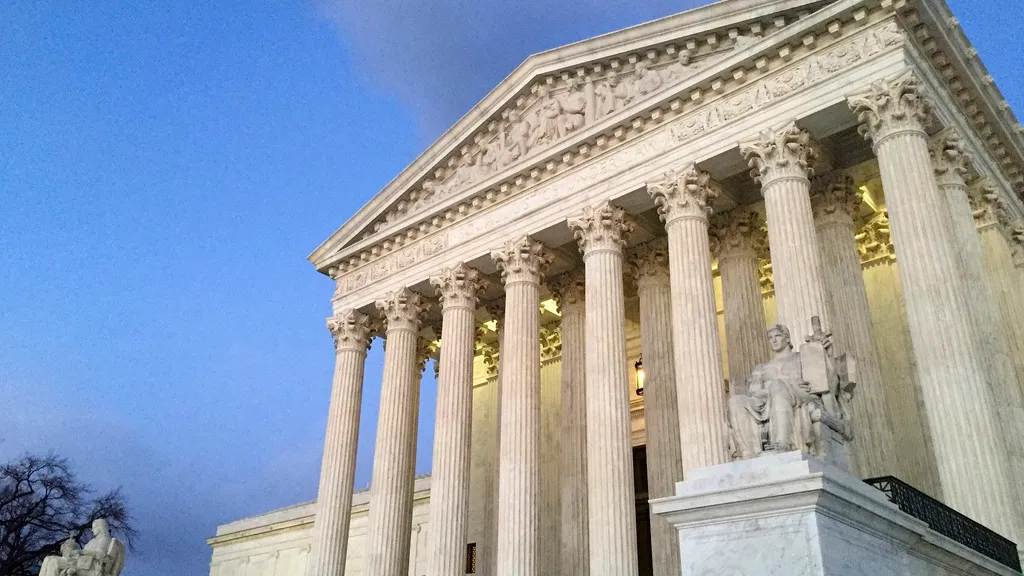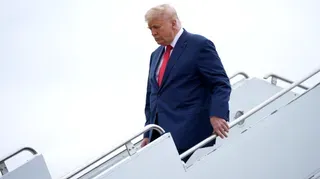October 30, 2015
Pot Legalization Effort in US Heartland Takes Many Paths
Julie Carr Smith READ TIME: 3 MIN.
So a few states out West and a couple cities on the East Coast have voted to legalize marijuana. Does that mean legal pot can fly in the heartland?
A ballot proposal before Ohio voters next month would be the first in the nation to legalize both medical and recreational marijuana in a single vote. It's funded by private investors and mounted in an off-year election cycle, the only marijuana-related question on any state ballot this year.
Why such an unusual profile? Thank the complex politics of this king of politically divided states.
"The reason that we're a battleground state is because we shake it up. We shake it up in a big, big way," said Ian James, director of ResponsibleOhio, the legalization campaign.
That means roughly $4 million has been spent on TV ads so far - with varying messages targeted at parents, military veterans, blacks, union members and senior citizens. It means kids in wheelchairs promoting medical marijuana, a green bud-shaped mascot trolling college campuses and a tough-on-crime prosecutor touting economic benefits to cash-strapped police departments.
There's even a concurrent campaign proposing to purge old marijuana-related convictions if this year's Issue 3 passes.
James, a ballot-campaign veteran, said if it looks like chaos, it's not. It's a strategy - aimed at capturing various pockets of one of America's most well-studied electorates, one stretching from farm country to inner-city Cleveland to blue-collar Toledo to Appalachia.
"It's a multistate strategy inside the state of Ohio," James said. "Ohio's one of the most complex media-market states in the nation, next to New York, California, Texas. It costs over $1 million a week in an off year to be on TV."
That's the reason the campaign solicited deep-pocketed investors who will have exclusive right to 10 authorized marijuana growing sites and combined the more popular medical-marijuana issue with recreational pot appealing to younger voters.
Critics say the campaign's lack of a philosophical focal point doesn't represent creative swing state politics, but greed. Its vast wealth - $12 million spent and $12 million more raised last quarter - has allowed for constant polling and strategy re-adjustment.
"The problem as I see it is that their campaign looks like a mess, because they've attempted to triangulate or differentiate so many messages that their opportunism is readily apparent," said state Rep. Mike Curtin, a Columbus Democrat opposing the measure.
Detractors say ResponsibleOhio picked 2015 to get ahead of an anticipated onslaught of legalization proposals expected during the 2016 presidential election.
The campaign's prospectus told potential investors they'd be "on the front line of a projected $1+ billion annual sale potential" and positioned for business returns elsewhere.
"In short, if it works here, it will work anywhere, which follows the old saying, 'As Goes Ohio, So Goes the Nation,'" the document said.
Brittany Clingen, senior writer at political information service Ballotpedia, said the effort is being closely watched nationally because of its unique structure.
"'This Issue 3 could be a game changer in multiple ways if it passes," she said. "Not only would it be the first to combine medical and recreational marijuana but, from a ballot measure perspective, it's setting up this precedent of pay-to-play for direct democracy."
Philip Wallach, a fellow at the Brookings Institution who studies marijuana politics, said it's a one-of-a-kind issue, out of step with the more mainstream legalization movement and Ohio's particular self-identity.
"The idea that Ohio would be on the vanguard of any kind of issue relating to social politics is a little hard for me to wrap my head around," he said. With passage, Ohio would become the fifth state to legalize recreational marijuana after Colorado, Washington, Oregon and Alaska.
Opponents have placed a separate initiative on the ballot that's designed to nullify legalization. It prohibits economic monopolies from being placed in Ohio's constitution and makes sure to specifically apply to the growing-site network proposed by ResponsibleOhio.
"Monopoly" is proving to be a hot-button word among Ohio's independent-minded voters, including farmers contemplating a new cash crop.
Ohio Farmers Union spokesman Ron Sylvester said the idea of "markets rigged for already wealthy interests" prompted his group's opposition: "Frankly, we didn't even have to engage members on issues of morality."
Daniel A. Smith, a political science professor at the University of Florida, said the anti-monopoly campaign could be enough to sink Ohio's legalization question.
"For opposition campaigns, you just have to find the one silver bullet to derail an initiative," he said. "Proponents have to defend all aspects of it."






